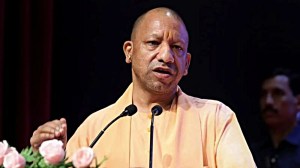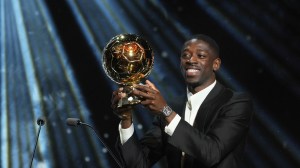Independence Day speech: Kalam pegs it on pluralism
Picking up from where he left off during his just-concluded visit to Gujarat, President A.P.J. Abdul Kalam today called for an end to commun...

Picking up from where he left off during his just-concluded visit to Gujarat, President A.P.J. Abdul Kalam today called for an end to communal and other divisive clashes and emphasised the importance of upholding the pluralistic tradition.
In his first Independence Day-eve address to the nation, the President also appeared to be worried over the disruptions in Parliament and various legislatures. Kalam said that non-violence, tolerance, acceptance of all religions and different ways of life, search for truth and fearlessness were the values Mahatma Gandhi taught the people.
‘‘They are the cornerstones of our civilisational heritage and, therefore, of Indian polity. Any act by anyone anywhere in India that runs counter to these eternal values would pose a threat to the fabric of free Indian nation which was born and nurtured by the supreme sacrifices of countless noble souls,’’ he said.
The President devoted a good part of his speech to his Gujarat visit, invoking Gandhi, Vallabhbhai Patel and Vikram Sarabhai, all three contributions of the state to the country.
He recalled the thought dominant in his mind during his visit to Gandhi’s Sabarmati Ashram. ‘‘If we can go above our own personal hardships and see the problems of others and decide to work for a larger cause, then there is natural elevation of our minds,’’ he said.
‘‘When we are are lax in this, then our level of thinking goes down. I felt confident that all of us can be elevated to the level of noble minds, if we just decide to understand others and to practice tolerance,’’ Kalam said.
‘‘Time has come for everyone of us to put the thoughts of these great souls into action for the nation’s welfare,’’ he said.
Elaborating on his apparent concern over the functioning of the legislatures, the President wanted that our children should see the MPs ‘‘debating the vision of a developed India, providing action plans and putting forth great thoughts and challenges to them.’’
Parliamentarians, he said, could shape the future of children by becoming good role models. ‘‘It is now time we create more role models for the present,’’ he observed.
The President also spoke of the need for the country to have a second vision similar to the first which created a movement to achieve freedom with unity of minds of the people and the unity of purpose in actions.
The second vision would help transform the country from its present developing status to a developed nation by integrated actions simultaneously in the areas of agriculture, food processing, education, healthcare and infrastructure development including power, information and communication technologies and critical technologies.
‘‘The vision of the nation will also remove the conflicts arising out of differences and small thinking,’’ he said, but pointed out that such a vision could not be sustained without unity of minds.
Photos


- 01
- 02
- 03
- 04
- 05





























